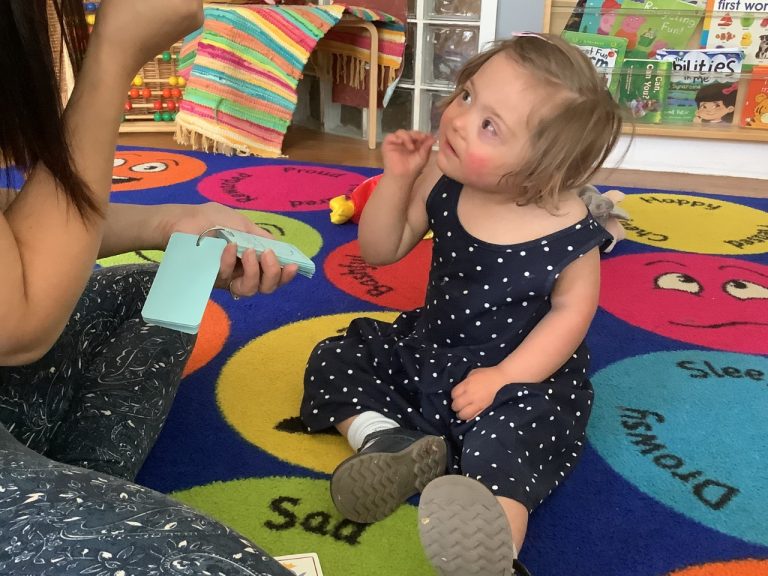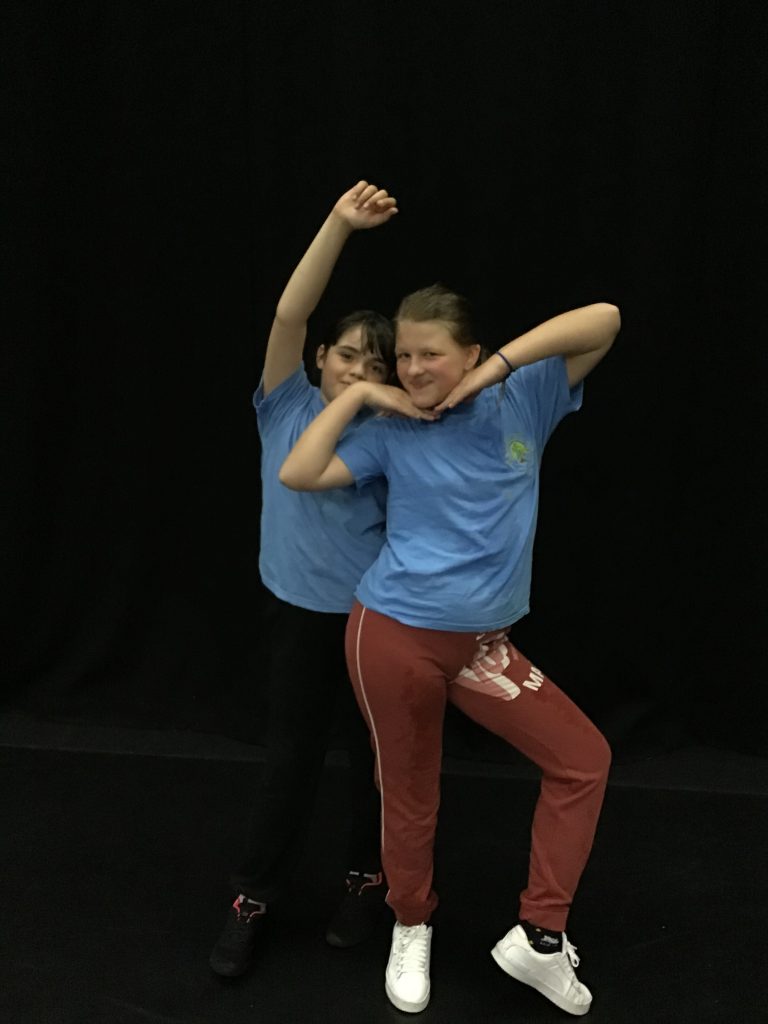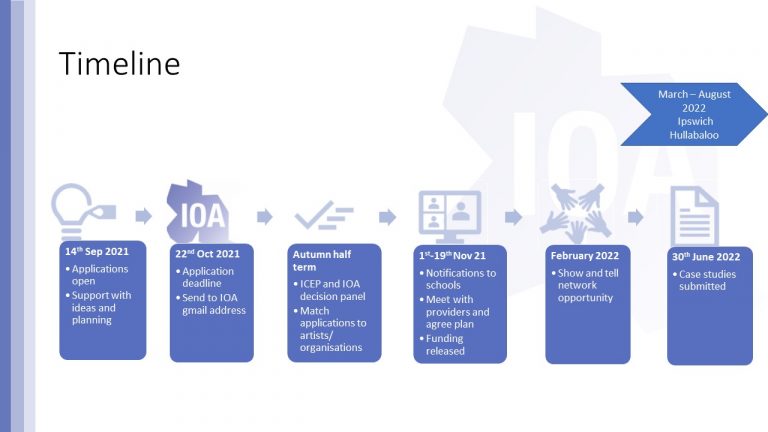Why was the project needed?
Following the continued 2021 lockdowns schools, colleges and early years settings found that they were working hard to support children and young people’s confidence and emotional literacy. Educators were also reflecting on the impact of Covid restrictions on children and young people’s ability to engage with the arts – as shared arts resources were put away and children were temporarily unable to dance, sing and perform together. In a meeting of the Ipswich Education Leadership Board school leaders expressed a desire to open their sites to the struggling arts sector to meet the growing need for children, young people and their families to enjoy creative activities together in public spaces.
The Tell Your Story project was created to address these challenges, and to give local children and young people the chance to tell their own story after Covid.
What happened and what was the impact?
Educational settings in Ipswich and Felixstowe were offered £2500 grants to partner with a local artist, arts-based or cultural organisation on a project to develop children and young people’s oracy and/or emotional literacy.
the project was open to Early Years settings, schools (including special schools and alternative provision) and post 16 sixth forms and colleges within the Ipswich Opportunity Area and Felixstowe.
The following conditions of funding were set:
Participating schools, settings and colleges should buy in some partnership activity from an external local artist, arts or cultural organisation.
Funded activity should create new opportunities for children to engage with the local cultural offer, particularly for those children and young people who have had the least opportunity to do so. For this reason in secondary and post 16 settings this is likely to sit as a cross curricular or enrichment activity rather than within GCSE/BTEC/A Level option subjects.
Participating schools, settings and colleges are strongly encouraged to engage with support from the Ipswich Cultural Education Partnership (ICEP) throughout the application, planning and delivery process.
The project was oversubscribed, and priority was given to applications that:
- demonstrated new activity or partnerships
- clearly articulated intended measurable outcomes for the children/staff that participate
- demonstrated that the activity would help the school or setting develop their cultural education offer over time
Applications only had to focus on the end outcome that the school or setting was seeking for young people. The Ipswich Cultural Education Partnership used the applications to “match” settings to local arts and cultural partners, and together they formalised their project idea and submitted it to release funding.
45 different projects took place in Spring and Summer 2022, across 9 early years settings, 5 secondary schools and colleges and 19 primary schools. The case studies below show the range of impacts experienced by different activities that schools and partners put together, all of which targeted either emotional literacy, oracy or both.
What did and didn't work?
The Involvement of the Ipswich Cultural Education Partnership (ICEP) and the generosity of the arts partners who helped with the matching process was key to the success of the project.
An unexpected outcome of the project was interpretation of cultural partnerships – interpreted by many grant recipients as an opportunity to look more deeply at children and young people’s identity, heritage and sense of belonging, resulting in some really exciting performances and creations.
How did you measure success?
Schools and settings chose how they would measure outcomes. These varied from bespoke pupil perception surveys before and after activities, to standardised approaches such as the Highfield Resilience Tracker or the Warwick Wellbeing or Leuven scales. Early Years settings tended to use observations of children’s behaviour and parent perception surveys. Some schools looked at attendance and engagement data.
For many projects engagement with the process was a win in itself, where the children and young people targeted regularly found it hard to participate in activities and conversations with their peers, and the creative approach gave them an opportunity to express feelings and ideas in a new way. Many schools and settings were keen to improve parental engagement, and measured success in having more parents feel comfortable to come into the school or setting and watch performances and view children’s work.




If you've got any thoughts and ideas of how this approach could be improved or an positive impact it's had for you, add them below
Login or register now to post any comments